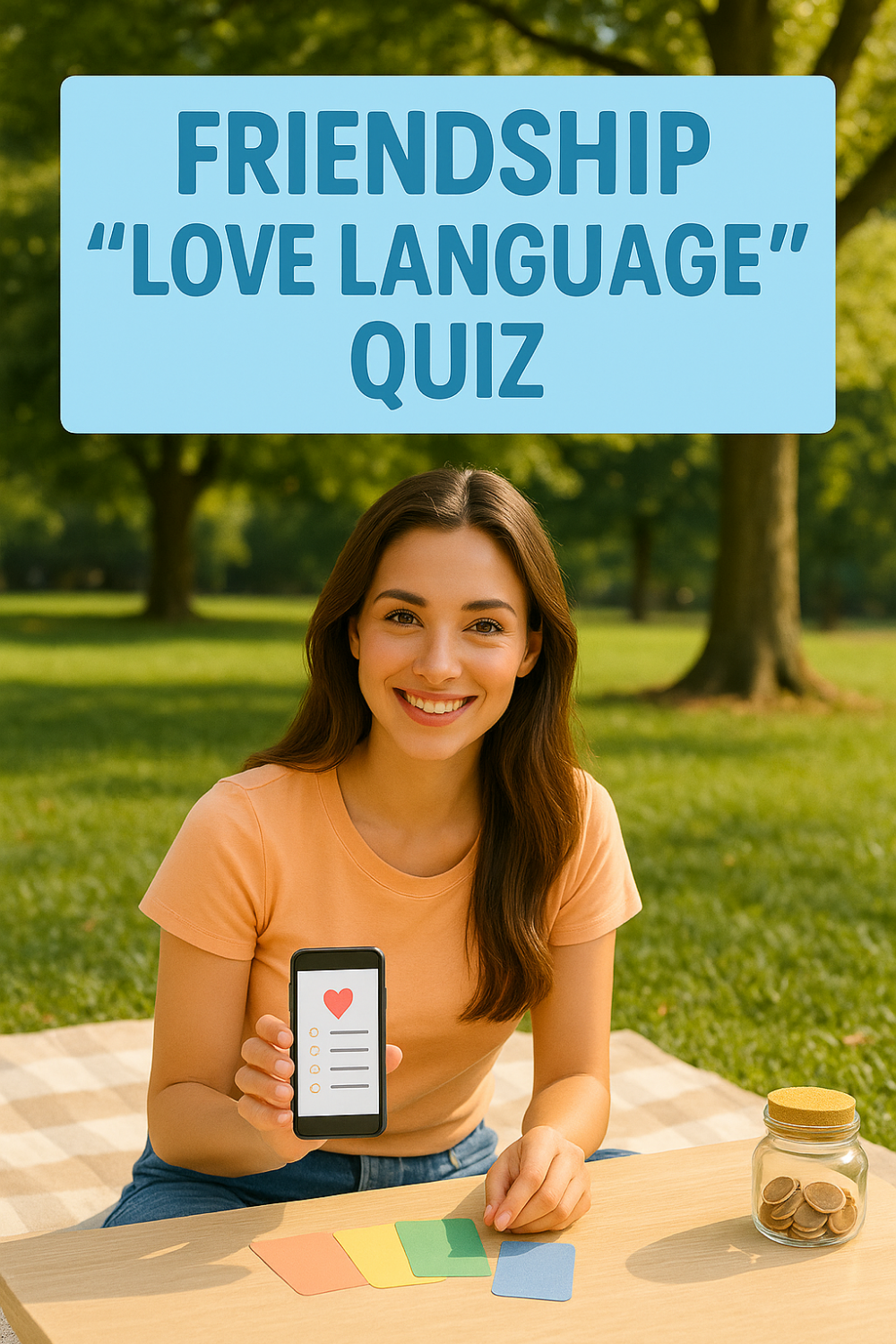Friendship “love language” quiz is a helpful tool that allows friends to understand how they best give and receive affection. Knowing each other’s friendship love languages improves communication, deepens connection, and strengthens bonds.

- What Are Friendship Love Languages?
- Why Understanding Love Languages Matters in Friendships
- How a Friendship Love Language Quiz Works
- The Five Friendship Love Languages Explained
- How to Take and Interpret the Quiz
- Applying Friendship Love Language Insights
- Tips for Nurturing Friendships Using Love Languages
What Are Friendship Love Languages?
Friendship love languages are specific ways friends express and perceive care and appreciation. Based on the concept of love languages originally developed for romantic relationships, this framework helps decode how friends show affection in meaningful ways.
The five main friendship love languages are:
- Words of Affirmation
- Quality Time
- Acts of Service
- Receiving Gifts
- Physical Touch
Each person has a primary and secondary love language that influences how they feel most valued.
Why Understanding Love Languages Matters in Friendships
Misunderstandings can arise when friends express care differently. One might value quality time, while another prefers words of affirmation. Recognizing these differences fosters empathy and reduces frustration.
Understanding love languages helps:
- Deepen emotional intimacy
- Improve communication
- Resolve conflicts gracefully
- Make gestures feel more meaningful
- Strengthen long-term bonds
Friendship thrives when both parties feel seen and appreciated.
How a Friendship Love Language Quiz Works
The quiz consists of carefully designed questions that assess preferences for different types of affection and attention. Answering honestly reveals dominant love languages.
The quiz helps friends:
- Identify their own love language profiles
- Understand their friend’s preferences
- Discover gaps or mismatches in expression
- Find ways to better support each other
It’s a fun and insightful activity that promotes self-awareness and mutual understanding.
The Five Friendship Love Languages Explained
Words of Affirmation
This language values verbal encouragement, compliments, and affirming words. Friends feel loved when praised or thanked.
Quality Time
Spending meaningful time together without distractions is key. Shared experiences and deep conversations matter most.
Acts of Service
Helpful actions like running errands or lending support show care. Doing things for each other strengthens bonds.
Receiving Gifts
Thoughtful presents, no matter the size, symbolize appreciation and remembrance.
Physical Touch
Hugs, pats on the back, or casual touch convey warmth and reassurance.
How to Take and Interpret the Quiz
Step 1: Answer Questions Honestly
Choose responses that truly reflect your feelings and preferences.
Step 2: Score Your Answers
Tally your points per category to identify your primary and secondary love languages.
Step 3: Share Results with Friends
Discuss your findings to build awareness and empathy.
Step 4: Reflect on How You Express and Receive Affection
Notice patterns and consider adjustments for more fulfilling interactions.
Applying Friendship Love Language Insights
Once you understand your friendship love languages, apply this knowledge by:
- Tailoring your expressions of care to your friend’s preferences
- Communicating your own needs clearly
- Practicing patience and openness to different love languages
- Celebrating unique ways of showing affection
This approach enhances closeness and reduces misinterpretation.
Tips for Nurturing Friendships Using Love Languages
- Regularly check in on each other’s needs
- Be intentional about expressing affection in your friend’s preferred language
- Recognize and respect differences without judgment
- Use the quiz periodically as friendships evolve
- Combine love languages for richer connections
Frequently Asked Questions
Can love languages change over time?
Yes, life experiences and circumstances can shift preferences.
Is it possible to have more than one primary love language?
Many people have multiple strong love languages.
How do I address a mismatch in love languages?
Communicate openly and make efforts to meet each other’s needs.
Can love languages help resolve friendship conflicts?
Absolutely, understanding how affection is shown reduces misunderstandings.
Are love languages the same in all types of relationships?
They vary but core principles apply broadly to friendships, family, and romantic ties.